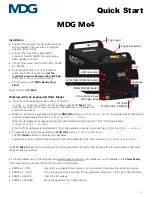
–
76
–
30. TROUBLES IN SEWING AND CORRECTIVE MEASURES
Troubles
Causes
Corrective measures
1. Thread breakage
(Thread frays or is worn
out.)
(Needle thread trails 2 to 3
cm from the wrong side of
the fabric.)
1
Thread path, needle point, hook blade point
or bobbin case resting groove on the throat
plate has sharp edges or burrs.
™
Remove the sharp edges or burrs on the blade point of
hook using a
fi
ne emery paper. Buff up the bobbin case
resting groove on the throat plate.
2
Needle thread tension is too high.
™
Decrease the needle thread tension.
3
Bobbin case opening lever provides an
excessive clearance at the bobbin case.
™
Decrease the clearance provided between the bobbin
case opening lever and the bobbin. Refer to “23.
ADJUSTING THE BOBBIN CASE OPENING LEVER”.
4
Needle comes in contact with the blade
point of hook.
™
Refer to “21. NEEDLE-TO-HOOK RELATION”.
5
Amount of oil in the hook is too small.
™
Adjust the amount of oil in the hook properly.Refer to “9.
LUBRICATION”.
6
Needle thread tension is too low.
™
Increase the needle thread tension.
7
Thread take-up spring works excessively or
the stroke of the spring is too small.
™
Decrease the tension of the spring and increase the
stroke of the spring.
8
Timing between the needle and the hook is
excessively advanced or retarded.
™
Refer to “21. NEEDLE-TO-HOOK RELATION”.
2. Stitch skipping
1
Timing between the needle and the hook is
excessively advanced or retarded.
™
Refer to “21. NEEDLE-TO-HOOK RELATION”.
2
Pressure of the presser foot is too low.
™
Tighten the presser spring regulator.
3
The clearance provided between the top
end of the needle eyelet and the blade
point of hook is not correct.
™
Refer to “21. NEEDLE-TO-HOOK RELATION”.
4
Hook needle guard is not functional.
™
Refer to “22. ADJUSTING THE HOOK NEEDLE
GUARD”.
5
Improper type of needle is used.
™
Replace the needle with one which is thicker than the
current needle by one count.
6
Twist of tneedle thread has returned.
™
Wind the needle thread around the needle.
3. Loose stitches
1
Bobbin thread does not pass through the
tension spring of the inner hook.
™
Thread the bobbin thread correctly.
2
Thread path has been poorly
fi
nished.
™
Remove rough parts with a
fi
ne emery paper or buff it up.
3
Bobbin fails to move smoothly.
™
Replace the bobbin or hook with a new one.
4
Bobbin case opening lever provides too
much clearance at the bobbin.
™
Refer to “23. ADJUSTING THE INNER HOOK GUIDE”.
5
Bobbin thread tension is too low.
™
Increase the bobbin thread tension.
6
Bobbin has been wound too tightly.
™
Decrease the tension applied to the bobbin winder.
7
Insuf
fi
cient lubrication
™
Perform lubrication to the hook.
(When using thick thread, it is recommended to perform
lubrication to the hook every time the bobbin is replaced.
4. Thread is caught with the
feed dog.
1
Stroke of the thread take-up spring is small.
™
Increase the stroke of the thread take-up spring.
2
Tension of the thread take-up spring is low.
™
Increase the tension of the thread take-up spring.
5. Thread slips off the needle
eyelet simultaneously with
thread trimming.
1
Thread tension given by the tension
controller No. 1 is too high.
™
Decrease the thread tension given by the tension
controller No. 1.
6. Thread slips off the
needle eyelet at the start
of sewing.
1
Thread tension given by the tension
controller No. 1 is too high.
™
Decrease the thread tension given by the tension
controller No. 1.
2
Clamp spring has improper shape.
™
Replace the clamp spring with a new one or correct the
current one.
3
Bobbin thread tension is too low.
™
Increase the bobbin thread tension.
7. Thread is not cut sharply.
1
The blades of moving knife and counter
knife have been improperly adjusted.
™
Refer to “24. POSITION OF THE COUNTER KNIFE
AND ADJUSTMENT OF THE KNIFE PRESSURE”.
2
The knives have blunt blades.
™
Replace the moving knife and counter knife with new
ones, or correct the current ones.
3
Bobbin thread tension is too low.
™
Increase the bobbin thread tension.
8. Thread remains uncut
after thread trimming.
(Bobbin thread trimming
failure when stitch length
is comparatively short.)
1
Initial position of the moving knife has been
improperly adjusted.
™
Refer to the Engineer’s Manual.
2
Bobbin thread tension is too low.
™
Increase the bobbin thread tension.
9. Thread breaks at the start
of sewing after thread
trimming.
1
The needle thread is caught in the hook.
™
Shorten the length of thread remaining on the needle
after thread trimming.
Refer to “17. THREAD TENSION”.
Содержание PLC-1710
Страница 2: ...i DEUTSCH 3 3 3 I II...
Страница 3: ...ii 1 5 1 2 3 4 1 2 3 1 2 1 1 2 2 1 2 2 2 3 3 4 5...
Страница 4: ...iii DEUTSCH 1 2 3 1 2 I 1 2 II 1 V 30mm 2 3 III 1 2 IV 1 2 V 1 2 3 1 2 3 4 5 V...
Страница 5: ...iv 6 7 1 JUKI JUKI 2 3 1 2 3 4 5 6 7 8 9 1 2 10 3 4 5 35 35 85 5 6 7 8 85dB 90dB 90dB 9...
Страница 6: ...v 1 2 3 4 5 6 1 2 3 4 5 6 7 8 9...
Страница 33: ...xxxii...
Страница 34: ...xxxiii...
Страница 35: ...xxxiv 9 PP 9 9...
Страница 36: ...xxxv 8 8 f...
Страница 37: ...xxxvi 1 2 3 V 4 V 5 6 1 2 3 4 5 6 7 8 9...
Страница 48: ...7 84 84 84 84 84 4 Q UQV Q UQV UU UU UU UU 6U 6U 6U 6U 6U 6U UU UU UU UU 2 31 6M_ MNZQ 7QT 6W 1...
Страница 122: ...81 30 KU 1 2 3 4 5 6 7 8 1 2 3 4 5 6 1 2 3 4 5 6 7 1 2 1 1 2 3 1 2 3 1 2 1...
Страница 123: ......








































